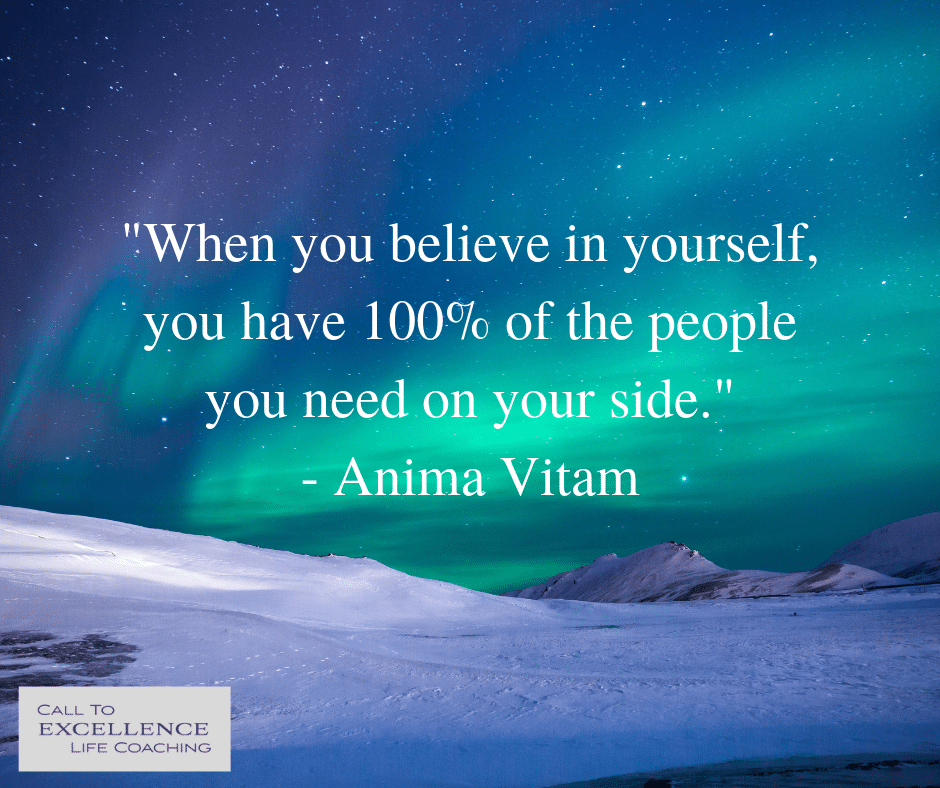
Have you ever had a dream or an idea that lit you up inside?
Something that caused excitement to bubble up inside you like a spring of clear, fresh water?
Something that brought a smile to your face and gave you the warm fuzzies?
Something that made you feel like you had finally discovered what you were meant to do?
Something that would bring you the happiness and fulfillment you’d been searching for?
Maybe even an idea that could potentially change the world?
And then you shared your dream with someone else, and their reaction… well, let’s just say they weren’t as enthusiastic as you.
They rained on your parade.
Along my journey in life, I’ve run into my fair share of these people who I’m going to call “Dream Crushers.” Here are just a few of the comments I’ve heard when I shared a dream with the wrong person:
- Who do you think you are to believe you could have that?
- You’re too stupid – you’ll never be able to do that.
- You can’t get everything you want – you need to be realistic (ironically from someone who didn’t even know what it was I wanted…).
- That’s ridiculous – why would you even want that?
- It’s wrong to want more.
- Things like that don’t happen to people like you.
I’m sure you have your own list. We all do. Dream Crushers are everywhere.
Maybe their reaction was protective – they didn’t want to see you get your hopes up and get hurt, so they advised you to be practical and scale back your expectations.
Maybe they were outright hostile.
Maybe it wasn’t a specific person, but instead general messages from society.
Whether the people who deliver them mean well or not, these messages are Dream Crushers, and they are probably the biggest block to living up to our true potential.
That old saying “Sticks and stones may break my bones, but words will never hurt me” couldn’t be more wrong. Words have power. Words impact our belief in ourselves, and in our ability to achieve our dreams. Damaging words from the outside can feed our internal self talk, the stories we replay over and over again in our minds.
Discouraging words can stop us dead in our tracks, or they can act more like a nail in a tire, causing a slow leak of our confidence, but either way, they drain us of the enthusiasm we need to keep going on the road to living out our highest vision for our lives.
That’s why it’s critical for us to develop strategies to protect ourselves from the Dream Crushers.
What Kind of Seed Are You?
Take a look at this picture. What kind of plant will grow from these seeds?

Don’t know? That’s okay. Unless you’re an expert gardener or plant biologist, how would you know? I don’t know either, I just found a picture of some random seeds on the internet.
But that seed knows what it is. All of the instructions for what kind of plant it’s meant to become are contained within its outer shell. Put it in the right kind of soil, water it, give it some sunlight, and it will grow into exactly the kind of plant it’s meant to be.
Without any input from you or me. In spite of our opinions about what we think it should be or want it to be.
You and your dream are just like that seed. Only you know what you’re capable of, and only you can really see the vision of your dream or goal. No one else will ever be able to see your vision as clearly as you can. No one else will ever be able to know what you are truly capable of accomplishing. They can’t see inside your shell.
Remember that the next time the people in your life try to tell you what is and isn’t possible or realistic. What they’re doing is as absurd as telling a sunflower seed it should grow into an oak tree, or telling an acorn to sprout into a petunia.
Avoid the Seed Eaters
Now, our little seed faces a lot of dangers and obstacles on its way to growing into the big strong plant it’s meant to be. There are a lot of creatures out there that live to devour little seeds – birds, rodents, and even granola-eating humans.
Likewise, there are a lot of people out there who go through life devouring hopes and dreams.
I heard this story about crabs twice in the past week, and I think it fits. Picture a bucket with crabs at the bottom. If one of the crabs latches onto the side of the bucket and starts to pull itself up in an attempt to escape, the crabs at the bottom will grab onto it and pull it back down.
There are people in our lives who do the exact same thing when we try to change and grow and grab onto more in life.
Sometimes they do it deliberately, out of anger or bitterness, because they gave up on their own goals.
Sometimes they do it out of a misguided sense of protectiveness, because they experienced some sort of disappointment, and they want to protect us from the same fate.
And sometimes they don’t even realize they’re doing it, they’ve just bought into cultural belief systems that limit possibilities and categorize people based on some sort of superficial characteristics.
Honestly, it doesn’t matter why they do it, any more than it matters to the seed whether it gets eaten by a bird or a gerbil. What matters is that you keep your dream safely away from the jaws of these Dream Crushers.
Strategy #1: Bury Yourself in the Dirt
A seed is most vulnerable to hungry predators when it’s lying on the ground and easily visible. The safest place for a seed is underground.
What does that mean for you and me?
First, keep your vision or dream to yourself when you’re in the company of potential Dream Crushers. Not everyone needs to know what you’re up to. Keep your own counsel.
However, this doesn’t mean keeping your dream locked up in a dark box in the farthest corner of your mind and forgetting about it. Far from it.
While our little seed is buried under the dirt, it’s absorbing water and nutrients and beginning to sprout.
The second thing we need to do while our dream is still in the seed stage is to water it and nurture it. Begin to learn more about what we need to do to get from where we are to where we want to be, and begin to develop the strategy and the skills we’ll need along the way.
Let’s say your dream is to start your own business. During this seed stage, you could begin doing research on the technical, financial, and legal aspects of starting and running the type of business you envision. You could begin to put together a business plan, with a list of the resources you’ll need. You could learn more about marketing, pricing, and sales. You could begin to beef up your skills, especially in areas where you may be weak. You could take some classes or webinars, or investigate groups (local or virtual) where other entrepreneurs get together.
The same principle holds whether your goal is to go back to school and get a degree, or create a healthier lifestyle and get into shape, or improve your relationships, or write a book. There’s plenty of work to be done before anyone needs to know what you’re up to.
Wait to reveal your vision to anyone except the people you can count on to support you whole-heartedly until that dream has begun to grow roots and sprout, and it’s strong enough to handle resistance.
Strategy #2: Find a Master Gardener
Out in the wild, the chance of any given seed finding the right conditions to germinate and grow into a fully mature plant are a little sketchy – that’s why plants produce so many seeds.
But, when you put a seed into the hands of a master gardener who knows exactly what type of soil and nutrients and light it needs, the chances of that seed blossoming to its full potential go up enormously.
It’s the same for us. We have a much better chance of achieving our goal or dream if we find a mentor or coach with expertise and experience who can guide us along the path.
This master gardener isn’t just anyone, and it’s important to do some research before you entrust your hopes and dreams.
First, make sure they have a green thumb. This means making sure your potential mentor/coach has either achieved success themselves in your area of interest, whether it be career or relationships or fitness, or that they have a solid track record of helping others accomplish the results you want to produce.
There are a lot of imposters and scam artists out there, and they’ll happily take your money while crushing your seed. If they promise you big results with very little change or effort on your part – steer clear.
Second, make sure they have the right mindset – they can “see” you accomplishing your goal, they’re enthusiastic about investing themselves in your success, they’re honest about both your strengths AND weaknesses, and up front about what it’s going to take.
I knew my personal trainer was the right one for me when I told him my fitness goals, and his reply was a matter-of-fact “That’s going to require you to get uncomfortable. Really uncomfortable.”
Now, that may not sound like the most inspirational answer, but it was the best. He wasn’t saying it was impossible or unrealistic, he was just giving me an honest assessment of what it would take for me to get from where I was to where I wanted to be. It was possible, and he had the expertise to get me there, if I was willing to do the work and make the changes it would require.
He’s also incredibly encouraging, and points out all the little improvements that I don’t notice. At the same time, he consistently pushes me to tackle new challenges, and points out where I need to work on my form, or when I need to supplement our sessions with some exercises on my own.
This is one of the ways an experienced coach or mentor is superior to a supportive friend – they tell you what you need to hear, not just what you want to hear, to keep moving forward. But they should always do it in a way that fosters your belief in yourself.
Strategy #3: Plant Yourself in a Nursery
If you do any gardening, you’ve probably visited a nursery where they grow large quantities of specific kinds of plants for sale. They have flats of individual species growing together at approximately the same size or stage of development. And they all seem really healthy, because they’re getting the exact type of care they need.
Now, I don’t know if plants really benefit from growing in groups with others of their same kind (although there are scientists dedicated to investigating how plants communicate with each other using chemical signals…). But humans can definitely benefit from a community of other people who are committed to pursuing a similar goal.
We can’t eliminate all the sources of negative messages from our lives, but we can shield ourselves and weaken their influence by surrounding ourselves with people who build us up and strengthen our belief.
Many years ago when I was dabbling in writing fiction, I joined a writers group. Within that larger group, there were several subgroups where members had teamed up to help each other hone their skills and polish their work. Usually when the groups were formed, all of the members were at about the same level in their writing careers, and typically unpublished. What was fascinating was that once one person in the group landed a publishing contract (this was in the days before self-publishing was all the rage), within about 12-18 months all of the others had reached that milestone also.
There’s something magical that happens when you surround yourself with people who are traveling the same road you’re on, who are equally committed to reaching their goal. The energy of the group feeds the individual members. There’s a saying that a rising tide lifts all boats, and it’s certainly true in this situation.
The success of one member inspires and motivates everyone else. If one person stumbles, the others are there to pick them up. Everyone learns from each other, shares knowledge and resources, and contributes to create an atmosphere of encouragement and growth.
This same concept works everywhere – look at the popularity of masterminds and accountability groups in the business arena, study groups in school, and communities like CrossFit and Team in Training in the world of fitness.
So whatever your goal or vision involves, look for at least one other person, or ideally a small group of people, who share the same or similar ambition, to act as an incubator in which to grow your seed. Build a fortress to insulate yourself from the negative energy of the Dream Crushers.
Of course, just as it’s critical to choose the right gardener, do some investigating before you throw yourself into a group. It’s important that all members share a high level of ongoing commitment – partners who flake and fizzle after the initial enthusiasm wears off can be demotivating and frustrating. A supportive, encouraging atmosphere (rather than critical or hyper-competitive) is also crucial. And then there are individual factors – some people respond positively to friendly competition, while others shut down. Some people want more constructive criticism, and some people want more of a confidence boost. The key is to know yourself and how you work best, then evaluate potential partners or groups based on those criteria.
Your Turn
So, what are your best tips and tricks for dealing with the naysayers? Are you one of those people who gets even more fired up and determined to prove them wrong? Or have doubters and Negative Nellies ever kept you from following through on an idea or a dream? I’d love to hear from you – let me know in the comments below!
And check out the next post in this series, where we’ll talk more about the biggest Dream Crusher of all, our very own Inner Critic…







10 thoughts on “Believing in Yourself and Your Dream When No One Else Does – Part 1: Protecting Yourself from the Dream Crushers”
Really like this analogy with the seed! We’ve all met these “Dream Crushers” and it is good practice to keep our ideas/plans to ourselves sometimes. Great post!
Thanks Heather! It’s hard when we’re so excited about something that we want to tell everyone, but far better to keep our plans to ourselves (or to a small trusted circle) until we’re more sure of ourselves and our commitment, and maybe even have some results to show 🙂
Thank you, Susan. This is helpful! People who are Dream Crushers are hard. So are the bumps and bruises that come with starting something new. One thing I try to remember is this: bumps happen. I don’t have to take it personally and I don’t have to see it as the end of the road. As a writer, I often look at these as plot twists–and keep going.
Thanks Rochelle! Yes, the bumps are a normal part of the process and we should expect them – I love your analogy of plot twists! I like to see them as “threshold guardians” from the structure underlying all fiction, The Hero’s Journey. The bumps are there to either test our resolve, or to determine if we’ve mastered the skills we need to claim our “prize” 🙂
I’m definitely trying to avoid seed eaters and dream crushers. I agree that when you surround yourself with others who travel the same round you find the journey a little easier. Reminds me of the saying if you’re the smartest person in the room you’re in the wrong room.
Thanks for sharing your insights on this topic.
Thanks Lee! I love that saying too – the people we surround ourselves with will either level us up or level us down, so we need to choose carefully 🙂
A powerful analogy and a great warning to be discerning about who you share your big dreams with.
Thanks Wendy!
I’ve only recently become aware of the importance of avoiding dream crushers. Dreams really are like precious seeds full of potential but also fragile, vulnerable. Thanks for sharing this Susan, it’s a great reminder to take good care of my precious dream(s)!
Thanks Mojca! Do everything you can to protect and nurture those dreams 🙂